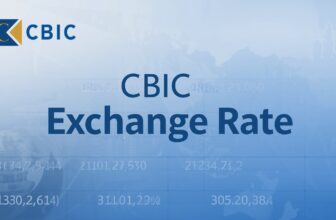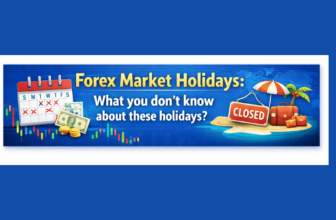
Looking to improve on your forex trading? One of the ways to increase the chances of success is going with the right broker. Discover the essentials of selecting a reliable forex broker. From regulatory compliance to trading platforms, delve into the key factors guiding your path to success.
Start by choosing a reputable forex broker. Do this by prioritising regulatory compliance, evaluating trading platforms, understanding fees, and ensuring customer support availability.
Key Takeaways:
- When choosing a forex broker, it’s important to consider their regulatory compliance.
- Comparing different forex brokers through reviews and ratings can help you find the best options.
- Evaluating account features such as trading platforms and customer service is crucial for a positive trading experience.
- Consider your specific trading requirements when selecting a forex broker.
- Choosing a reliable forex broker ensures the safety of your funds and the integrity of your trades.

How to Choose a Forex Broker
When it comes to selecting the right forex broker, there are several important factors to consider. With so many options available, finding the best forex broker for your trading needs can be a daunting task. However, by following these tips and criteria for choosing a forex broker, you can make a well-informed decision.
One of the first things you should check when evaluating a forex broker is their regulatory compliance. It’s crucial to ensure that the broker is a member of reputable regulatory bodies, such as the National Futures Association (NFA) and registered with the Commodity Futures Trading Commission (CFTC) in the US. This ensures the safety of your deposits and the integrity of the broker.
Another important factor to consider is comparing different forex brokers. Conducting a forex broker comparison allows you to assess their services, features, and trading conditions. Take the time to read forex broker reviews and ratings to gather insights from other traders’ experiences. This can help you narrow down your options and find the top forex brokers in the market.
Additionally, evaluate the account features and services offered by each forex broker. Consider factors such as the trading platform options, currency pair offerings, fees, and customer service. These features play a significant role in your overall trading experience, so it’s crucial to choose a broker that aligns with your specific requirements.
In summary, selecting the right forex broker is essential for successful trading. By considering factors such as regulatory compliance, conducting a thorough broker comparison, and assessing account features, you can make an informed decision that suits your trading needs.
How to Choose a Forex Broker: A Comprehensive Guide for Traders
When it comes to navigating the vast and dynamic world of forex trading, selecting the right broker is a crucial decision that can significantly impact your success. Here, we will explore key points to consider when choosing a forex broker, providing valuable insights to help traders make informed decisions.
Reputation and Regulatory Compliance: Building Trust in Forex Trading
Establishing trust in the forex market begins with scrutinising a broker’s reputation and ensuring adherence to regulatory standards. When trading in forex, traders must prioritise brokers who maintain a sterling reputation and are compliant with regulatory bodies.
Reputation Matters:
A broker’s reputation serves as the bedrock of trust within the trading community. Savvy traders look for brokers with a track record of transparency, fair practices, and ethical conduct. One notable example is the National Futures Association (NFA) in the United States. Reputable brokers proudly display their NFA membership number in the “About Us” section, signaling commitment to industry best practices.
Regulatory Compliance: A Pillar of Security:
Regulatory compliance ensures a broker operates within the confines of legal and ethical frameworks. For instance, brokers registered with the Commodity Futures Trading Commission (CFTC) in the US adhere to stringent guidelines. Additionally, European regulators such as the Financial Conduct Authority (FCA) play a pivotal role. For example, brokers regulated by the FCA are required to meet rigorous standards, providing traders with an added layer of security.
Global Regulatory Landscape:
Forex brokers are subject to regulations in various jurisdictions. Brokers in France, Germany, Switzerland, Austria, Canada, and the United Kingdom are regulated by their respective national authorities. This global oversight ensures uniformity in ethical standards, fostering a trustworthy environment for traders worldwide.
Safety in Numbers:
Traders should seek brokers associated with large financial institutions or banks, enhancing the safety of their funds. In the aftermath of the 2008 financial crisis, regulatory capital requirements rose substantially. However, the importance of broker stability became glaringly apparent in 2015 when the Swiss franc’s overnight collapse led to bankruptcies. This underscores the need for traders to align with well-established brokerage houses, reducing the risk of insolvency.
Negative Balance Protection: A Safety Net:
A crucial aspect of regulatory compliance is the provision of negative balance protection. This feature ensures that traders cannot lose more than the equity available in their accounts. For instance, brokers offering negative balance protection commit to bringing a trader’s balance back to zero at no cost in case of a negative balance. This protection mitigates the risk of substantial losses beyond the initial investment.
Conclusion:
Reputation and regulatory compliance are non-negotiables in the realm of forex trading. Trusted brokers not only boast a solid reputation within the trading community but also adhere to stringent regulatory standards. As a trader, prioritising brokers with a proven track record and robust regulatory compliance ensures a secure and transparent trading experience. In a vibrant forex market, these factors are the cornerstones of building lasting trust between brokers and traders.
Understanding Forex Trading Dynamics: Leverage, Margin, Spread, and Commission
In forex trading, the concepts of Leverage and Margin, as well as Spread and Commission, play pivotal roles in shaping the financial outcomes for traders. This section aims to demystify these critical aspects, providing traders with a comprehensive understanding of how they influence trading strategies and overall profitability.
Leverage and Margin: Balancing Risk and Reward
Leverage in forex trading allows traders to control a larger position with a fraction of the total value, magnifying both profits and losses. The concept of margin is intertwined with leverage, representing the percentage of the position’s value that the trader must provide. Here’s a breakdown of how it works:
Example:
Imagine wanting to buy 1000 shares of a company at £1 per share. With a conventional trade, the full exposure would require £1000. However, with a leverage ratio of 20%, the trader pays only £200 upfront, while the broker covers the rest. While leverage offers the potential for increased returns, it also amplifies the risk of substantial losses, making it crucial for traders to choose a broker with a balanced leverage ratio.
Moreover, a reputable broker provides negative balance protection, ensuring that traders cannot lose more than the equity available in their accounts. This acts as a safety net, safeguarding traders from excessive losses beyond their initial investment.
Spread and Commission: Managing Trading Costs
The spread and commission structure significantly impacts a trader’s overall costs in the forex market. The spread is the difference between the bid and ask prices, representing the broker’s fee for executing a trade. Commission, on the other hand, is a specified percentage charged on the spread or the transaction value. Let’s delve into these components:
Example:
Consider a broker offering a fixed spread of three pips for the EUR/USD pair. A pip is the minimum price change in forex. In this scenario, the trader pays a fixed spread of three pips when entering the trade. The spread may also be variable, adjusting based on market volatility. Traders should be aware that wider spreads, especially during volatile market conditions, can make it challenging to achieve profitability.
Understanding how a broker structures its fees, whether through commissions or spreads, is crucial for effective cost management. Some brokers opt for no commissions, relying on wider spreads. Traders need to evaluate the impact of these cost structures on their overall trading strategy and choose a broker that aligns with their financial goals.
Conclusion:
Leverage, margin, spread, and commission are integral components of the forex trading landscape. Traders must navigate these dynamics wisely, selecting brokers that strike a balance between providing leverage for enhanced returns and maintaining transparent fee structures. By comprehending these concepts, traders empower themselves to make informed decisions that align with their risk tolerance and trading objectives in the dynamic world of forex trading.
Tackling Forex Finances: Initial Deposit Requirements, Deposits, and Withdrawals
The financial aspects of forex trading, including Initial Deposit Requirements and the processes of Deposits and Withdrawals, are critical considerations that directly impact a trader’s ability to participate in the market. In this section, we explore these financial dynamics, shedding light on how traders can manage their funds effectively.

Initial Deposit Requirements: Tailoring Accounts to Suit Traders
Forex trading caters to a diverse range of investors, and brokers offer various account types with different Initial Deposit Requirements. These requirements define the minimum amount traders must deposit to open an account. Here’s a breakdown of this crucial aspect:
Example:
Many brokers provide flexibility in initial deposits, allowing traders to start with as little as £50. The availability of standard, mini, and micro accounts accommodates traders with varying risk appetites. While a smaller initial deposit grants accessibility to the forex market, traders should align their deposit size with their financial goals and risk tolerance.
Understanding your budget, risk tolerance, and trading objectives is paramount when deciding on the initial deposit. By doing so, traders can choose an account type that suits their individual circumstances and preferences.
Deposits and Withdrawals: Ensuring Smooth Financial Transactions
Efficient and transparent deposit and withdrawal processes are essential for traders to manage their funds seamlessly. Brokers differ in their policies, fees, and available methods for funding accounts and withdrawing profits. Let’s delve into the nuances of these financial transactions:
Example:
A trader should be aware of any fees associated with making the initial deposit. Some brokers offer a range of funding methods, including credit cards, bank transfers, and online payment systems. Understanding the fees and processing times associated with each method enables traders to make informed choices.
Moreover, brokers have specific policies regarding withdrawals, and fees may apply. A reputable broker provides clarity on withdrawal processes, ensuring that traders can access their profits with ease. Hidden charges can impact a trader’s overall profitability, making it crucial to consider these factors before selecting a broker.
Conclusion:
Managing finances effectively in forex trading involves a nuanced understanding of Initial Deposit Requirements, Deposits, and Withdrawals. Traders must align their initial deposit with their risk tolerance and financial goals while also considering the transparency and efficiency of deposit and withdrawal processes. By choosing brokers that offer flexibility, clarity, and fair policies, traders can navigate the financial aspects of forex trading with confidence and ensure a smooth trading experience.
Equipping Traders: Exploring Trading Platforms and the World of Available Forex Markets
In forex trading, the choice of trading platforms and the variety of available forex markets significantly influence a trader’s experience and success. This section delves into the features of trading platforms and the multitude of forex markets accessible to traders, providing insights into how these elements shape the trading landscape.
Trading Platforms: Entering the Financial Markets
A trading platform serves as the gateway for traders to access the forex market. These platforms vary in features, user interface, and functionality. When evaluating trading platforms, traders should consider factors such as ease of use, analytical tools, and order execution. Here’s a closer look at the significance of trading platforms:
Example:
Leading brokers offer robust trading platforms that cater to both beginners and experienced traders. MetaTrader 4 (MT4) and MetaTrader 5 (MT5) are popular choices known for their user-friendly interfaces and comprehensive charting tools. These platforms empower traders with real-time market data, advanced analysis, and the ability to execute trades seamlessly.
Additionally, some platforms offer unique features like one-click trading or automated trading through Expert Advisors (EAs). Traders must align platform features with their trading strategies and preferences, ensuring a smooth and effective trading experience.
Available Forex Markets: Understanding Currency Pairs and Market Interplay
The forex market encompasses a vast array of currency pairs, each representing a unique combination of two currencies. Traders can choose from major, minor, and exotic pairs based on their trading preferences and market focus. Understanding the available forex markets is crucial for strategic decision-making:
Example:
While major pairs like EUR/USD and GBP/USD garner significant attention due to high liquidity, traders may also explore minor pairs such as USD/JPY or exotic pairs like EUR/TRY. The availability of diverse markets allows traders to diversify their portfolios and adapt to various market conditions.
Moreover, brokers may provide access to other financial instruments beyond currency pairs, including commodities, indices, and cryptocurrencies. The breadth of available markets empowers traders to explore different asset classes and tailor their strategies to diverse market dynamics.
Conclusion:
The synergy between trading platforms and the multitude of available forex markets defines the landscape for forex traders. Selecting a reliable platform with the right features and understanding the diverse range of markets enables traders to make informed decisions and execute strategies effectively. By leveraging advanced platforms and exploring the extensive array of forex markets, traders can navigate the complexities of the financial markets with confidence and precision.
Optimising Forex Experience: Trading Hours, Customer Service, and Educational Tools
A well-rounded forex trading experience involves not only understanding market dynamics but also navigating the nuances of trading hours, customer service, and educational tools. In this section, we explore how these elements contribute to a trader’s success and knowledge enhancement in the forex market.
Trading Hours and Customer Service: Support Around the Clock
Forex trading operates 24 hours a day, five days a week, spanning major financial centres globally. Consequently, having access to customer service at any hour becomes crucial for traders. Here’s a closer look at the significance of trading hours and responsive customer service:
Example:
Consider a trader participating in the USD/AUD currency pair. Awareness of New York trading hours starting at 12 pm and Australian trading day beginning at 9 pm is vital. A broker offering 24/5 customer support ensures that traders can address queries or concerns, especially during irregular trading hours.
Responsive customer service, available through various channels like phone or email, adds immense value to a trader’s experience. Knowing that assistance is readily available fosters confidence, particularly for traders who engage in forex trading outside regular office hours.
Educational Tools: Empowering Traders with Knowledge
Educational tools provided by brokers play a pivotal role in shaping traders’ knowledge and skills. These tools range from comprehensive courses and tutorials to market analysis and strategy tips. Let’s explore how educational resources contribute to traders’ growth:
Example:
Leading brokers, such as IG, offer an integrated educational platform like IG Academy. This tool provides free courses allowing traders to learn at their own pace. Additionally, it offers a demo trading account with virtual funds, enabling traders to practice before engaging in live forex trading.
Educational tools extend beyond basic knowledge, encompassing strategy tips, news and analysis articles, and insights from in-house analysts. By leveraging these resources, traders can enhance their understanding of the forex market, refine their strategies, and stay informed about market developments.
Conclusion:
Trading hours, customer service availability, and educational tools collectively shape the forex trading journey. Traders benefit from brokers that offer round-the-clock support, ensuring assistance when needed, and provide comprehensive educational resources for continuous learning. By combining these elements, traders can navigate the dynamic forex market with confidence, armed with knowledge and robust support, ultimately enhancing their trading success.
Factors to Consider in Forex Broker Regulation
When choosing a forex broker, one of the most important factors to consider is regulation. A regulated forex broker is subject to oversight by regulatory authorities, which ensures that they operate within legal guidelines and adhere to industry standards.
Different countries have their own regulatory bodies that oversee the forex market. For example, in the United States, the National Futures Association (NFA) and the Commodity Futures Trading Commission (CFTC) are the primary regulatory organisations. In the United Kingdom, it’s the Financial Conduct Authority (FCA) that regulates forex brokers.
Regulation provides several important benefits for traders. Firstly, it ensures the safety of your deposits by requiring brokers to segregate client funds from their own operating capital. This helps to protect your money in case the broker faces financial difficulties. Secondly, regulation enforces transparency and fairness in the market, preventing fraudulent activities and market manipulation. Lastly, regulated brokers are required to have certain capital requirements, which adds an additional layer of financial security.
Regulatory Compliance in Forex Brokers: A Comparative Table
| Regulatory Body | Country | Regulation | Key Features |
|---|---|---|---|
| NFA | United States | Membership required for US-based forex brokers | – Segregation of client funds – Compliance with anti-money laundering regulations – Provision of detailed financial statements |
| CFTC | United States | Registration required for all forex brokers operating in the US | – Enforcement of fair and transparent trading practices – Protection of customer funds – Preventing fraud and market manipulation |
| FCA | United Kingdom | Licensing and regulation of forex brokers operating in the UK | – Client fund segregation – Financial transparency and reporting – Suitability assessment of clients |
This table provides a brief overview of the regulatory compliance requirements for forex brokers in the United States and the United Kingdom. It showcases the key features and benefits that regulated brokers offer to traders, emphasising the importance of choosing a broker that adheres to regulatory standards.
Key Account Features to Consider When Choosing a Forex Broker
When selecting a forex broker, it’s essential to evaluate the account features they offer. Considering factors such as forex broker reviews, ratings, and a comprehensive checklist will guide your decision-making process towards finding the right broker to meet your needs.
Forex Broker Reviews and Ratings
One of the most valuable resources for potential traders is forex broker reviews and ratings. These allow you to gain insights into the experiences of other traders with a particular broker. Make sure to consider reviews from multiple sources, including reputable forex trading communities.
Example of Review:
“I have been trading with [Forex Broker X] for over a year now and have been consistently impressed with their reliable execution, competitive spreads, and excellent customer service. Highly recommended!” – Trader123
Forex Broker Checklist
A comprehensive forex broker checklist is an invaluable tool when evaluating potential brokers. This checklist should include factors such as regulatory compliance, range of trading instruments, trading platform options, customer support availability, and fees and trading conditions.
Example of Forex Broker Checklist:
| Factor | Forex Broker X | Forex Broker Y | Forex Broker Z |
|---|---|---|---|
| Regulatory Compliance | Regulated by FCA | Regulated by ASIC | Regulated by CySEC |
| Range of Trading Instruments | Forex, Stocks, Commodities | Forex, Cryptocurrencies | Forex, Indices |
| Trading Platform Options | MetaTrader 4, WebTrader | MetaTrader 5, Mobile App | cTrader, WebTrader |
| Customer Support Availability | 24/7 Live Chat, Email | 24/5 Live Chat, Email | 24/7 Live Chat, Phone |
| Fees and Trading Conditions | Competitive spreads, No commission | Low spreads, Commission-based | Average spreads, No commission |
By comparing the offerings of different brokers using a checklist, you can easily identify the one that aligns with your trading preferences and goals.
Overall, considering forex broker reviews, ratings, and checklist factors are crucial steps towards choosing the best forex broker for your trading journey. Take the time to carefully evaluate the account features of the broker to ensure a seamless and rewarding trading experience.
Conclusion
Choosing the right forex broker is a crucial step in your trading journey. It can significantly impact your trading experience and ultimately determine your success in the forex market. By considering a few key factors, you can make an informed decision that aligns with your trading style and goals.
First and foremost, regulatory compliance is of utmost importance when choosing a forex broker. Ensure that the broker is regulated by reputable authorities such as the National Futures Association (NFA) and the Commodity Futures Trading Commission (CFTC) in the US. Regulation provides the necessary protection for your funds and guarantees the integrity of the broker’s operations.
In addition to regulation, evaluate the account features offered by different brokers. Consider factors such as currency pair offerings, trading platforms, and customer service. A broker with a wide range of currency pairs allows you to diversify your trading portfolio, while a user-friendly trading platform enhances your trading efficiency. Moreover, responsive and knowledgeable customer service is essential for resolving any issues or concerns that may arise during your trading journey.
Lastly, take into account the overall trading conditions and fees associated with the broker. Understand the spreads, commissions, and any additional charges that may be applicable. Be sure to compare different brokers to find one that offers competitive pricing and favourable trading conditions.
By carefully evaluating these factors, you can select a forex broker that meets your requirements, offering you a secure and efficient trading environment. Remember, the right broker can provide you with the necessary tools and support to navigate the forex market with confidence.
FAQ
To choose a forex broker, you should consider factors such as regulatory compliance, account features, currency pair offerings, customer service, and trading platforms. By evaluating these aspects, you can make an informed choice.
Regulation ensures that a forex broker operates within legal guidelines and adheres to industry standards. It provides oversight by regulatory authorities, ensuring the safety of your deposits and the integrity of the broker.
When considering forex broker regulation, it’s crucial to check their membership with reputable regulatory bodies such as the National Futures Association (NFA) and the Commodity Futures Trading Commission (CFTC) in the US. Different countries have their own regulatory bodies, such as the Financial Conduct Authority (FCA) in the UK.
When selecting a forex broker, it’s essential to evaluate factors such as forex broker reviews, ratings, a forex broker checklist, currency pair offerings, customer service, trading platforms, and account types. These features can help guide your decision-making process.
There are several recommended forex brokers for beginners, such as eToro, Plus500, and IG. These brokers offer user-friendly platforms, educational resources, and customer support specifically tailored to newcomers in the forex market.
Experienced traders often look for forex brokers with advanced trading platforms, competitive spreads, efficient execution, and a wide range of financial instruments. Some top forex brokers for experienced traders include IG, Pepperstone, and OANDA.
When selecting a forex broker, consider factors such as spreads, commissions, leverage options, minimum deposit requirements, and withdrawal policies. These trading conditions can significantly impact your trading costs and overall profitability.
To compare forex brokers, you can analyse factors such as regulatory compliance, account features, trading conditions, customer reviews, and ratings. Additionally, you can use forex broker comparison websites that provide comprehensive data on various brokers.

















